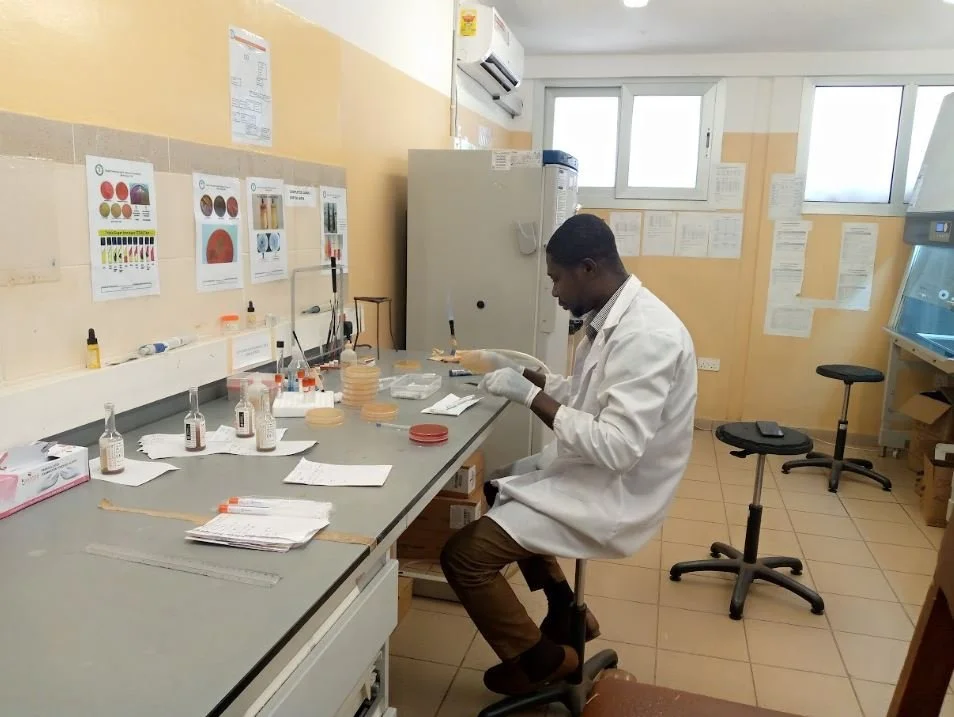New molecular diagnostic laboratory will strengthen the public health response to COVID-19, HIV/AIDS, tuberculosis, and chronic diseases in northern Ghana.
As evidenced by the COVID-19 pandemic, the urgency of diagnosing and managing infectious diseases has never been clearer. In northern Ghana, Tamale Teaching Hospital (TTH) is establishing a new state-of-the-art molecular diagnostic laboratory that will significantly improve the speed and capacity for laboratory testing of not only COVID-19, but also HIV/AIDS, tuberculosis and chronic diseases. This improved turnaround time will vastly improve clinical decision-making for the nearly eight million people served by TTH within its catchment area in the northern parts of Ghana and beyond.
The new molecular diagnostic laboratory will be located at the Infectious Disease Treatment Center situated on the premises of the TTH in Tamale, Ghana. It is funded by a donation of more than US$2 million from the Leona M. and Harry B. Helmsley Charitable Trust and made possible through the AMPATH Ghana partnership. In addition to TTH, the AMPATH Ghana partnership includes the University for Development Studies School of Medicine (UDS-SoM), NYU Grossman School of Medicine, and the AMPATH Consortium of 15 academic health centers around the world. The Ministry of Health and the Government of Ghana support such partnerships and provide tax exemptions for donated medical equipment and items.
There are very few molecular diagnostic laboratories in northern Ghana, causing substantial delays in obtaining results from these facilities back to healthcare providers and the patients they serve. Currently, there is only one laboratory with the molecular capacity to service all five regions in northern Ghana. This backlog has hampered the timely diagnosis of the COVID-19 viral infection, as well as some tuberculosis and HIV/AIDS investigations that also require polymerase chain reaction (PCR)-based diagnostic technology.
The laboratory consists of two 40-foot prefabricated laboratories that have the capacity to test for infectious diseases and some congenital genetic diseases, as well as enzymopathies and haemoglobinopathies (such as sickle cell and thalassemia). The laboratories are optimally tailored to align with the national and local care priorities and to optimize pandemic preparedness in northern Ghana.
“The new molecular diagnostic laboratory will be a huge asset in the community. It will vastly improve turnaround times for processing test results for COVID-19, HIV, multidrug-resistant tuberculosis (MDR-TB) and other chronic diseases in our region,” said Dr. Adam Atiku, Acting CEO of TTH. “In doing so, it will help provide adequate and quicker treatment to patients who need it most, as well as help healthcare workers respond to and prepare for future health emergencies.”
The donation from the Helmsley Charitable Trust supports laboratory modules, materials and supplies, training and project management.
“Helmsley is committed to strengthening the resilience of rural communities, and nimble, responsive health systems are an essential part of that,” said Walter Panzirer, a Helmsley Trustee. “The AMPATH Ghana partnership will improve health and wellbeing for people in northern Ghana, and its forward-looking training programs demonstrate a commitment to sustainability that we applaud.”
The Helmsley Charitable Trust previously contributed US$6.7 million in initial funding to establish the AMPATH Ghana partnership.
Not only will this laboratory have a tremendous immediate impact, UDS-SoM, UDS Department of Biomedical Laboratory Science, and TTH will run Master and Ph.D. programs in clinical microbiology, molecular medicine and medical laboratory science, ensuring a steady supply of trainees and professionals to support the facility's operations. “The new molecular diagnostic lab will help train healthcare workers and medical laboratory researchers in our medical school and community on molecular techniques,” said Professor Stephen Tabiri, Dean of UDS-SoM. “This laboratory will have a positive impact on the provision of healthcare in northern Ghana for generations to come.”
The AMPATH Ghana partnership is modeled after a 30-plus-year partnership in Kenya. The long-term sustainable partnership model “leads with care” by being accountable for the health of the population it serves and providing clinical care in a way that supports both research and training.
“We are thrilled to be part of the creation of this new molecular diagnostic lab in Tamale through the AMPATH Ghana partnership,” said Rajesh Vedanthan, MD, MPH, MS, director of the Section for Global Health at the Institute for Excellence in Health Equity and Associate Professor in the Department of Population Health at NYU Grossman School of Medicine. “Working together on such a critical project is a true testament to the enormous impact this academic global health partnership can make.”
Site preparation and training began in the first quarter of 2023, with lab operations anticipated to commence later in 2023.
For more information:
Tamale Teaching Hospital (Ghana)
Mr. Zuberu Aliu
Public Relations Officer
+233 24 288 1674
University for Development Studies-School of Medicine (Ghana)
Mr. Abdul-Hayi Moomen
Head University Relations
+233 024 281 8851
AMPATH Ghana/NYU Langone (US)
Ms. Sasha Walek
Communications Director, Department of Population Health
NYU Langone Health
646-501-3873

